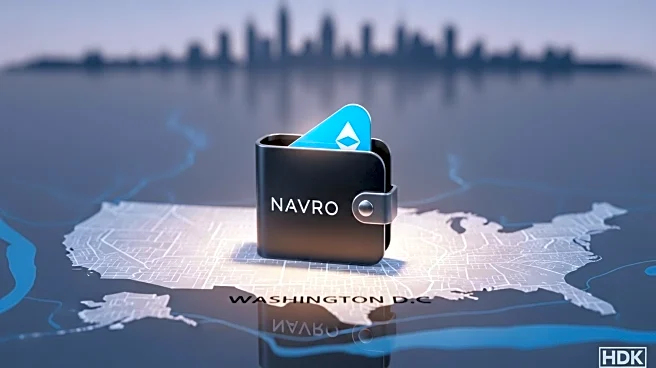What's Happening?
UK-based fintech company Navro has successfully acquired a money transmitter licence in Washington D.C., marking its second such licence in the United States after Delaware. This licence, regulated by the Department of Insurance, Securities and Banking (DISB), is part of Navro's strategic expansion into the U.S. market. The company aims to address cross-border payment challenges faced by international businesses, such as high transaction costs and lengthy processing times associated with traditional systems like SWIFT. Navro's platform offers a streamlined solution by providing access to various payment services through a single API and contract, simplifying the process for businesses that typically manage multiple service providers and payment gateways.
Why It's Important?
The acquisition of the money transmitter licence in Washington D.C. is a significant step for Navro as it seeks to expand its footprint in the U.S. financial services market. This move allows Navro to operate under full regulatory governance in a key market known for its concentration of multilateral institutions, NGOs, and businesses with complex cross-border payment needs. By simplifying payment processes and reducing costs, Navro's platform could become an attractive option for these organizations. The expansion aligns with Navro's broader strategy to grow its presence in major global markets, including Europe, Asia, and the Middle East, potentially increasing its competitive edge in the fintech industry.
What's Next?
With the Washington D.C. licence secured, Navro plans to leverage the Nationwide Multistate Licensing System (NMLS) to streamline the process of obtaining additional state-level licences. This system allows for the reuse of due diligence information, such as financial records and compliance policies, facilitating further expansion across the U.S. market. As Navro continues to grow its U.S. operations, it may attract more international businesses seeking efficient and cost-effective payment solutions, potentially leading to increased market share and influence in the fintech sector.









